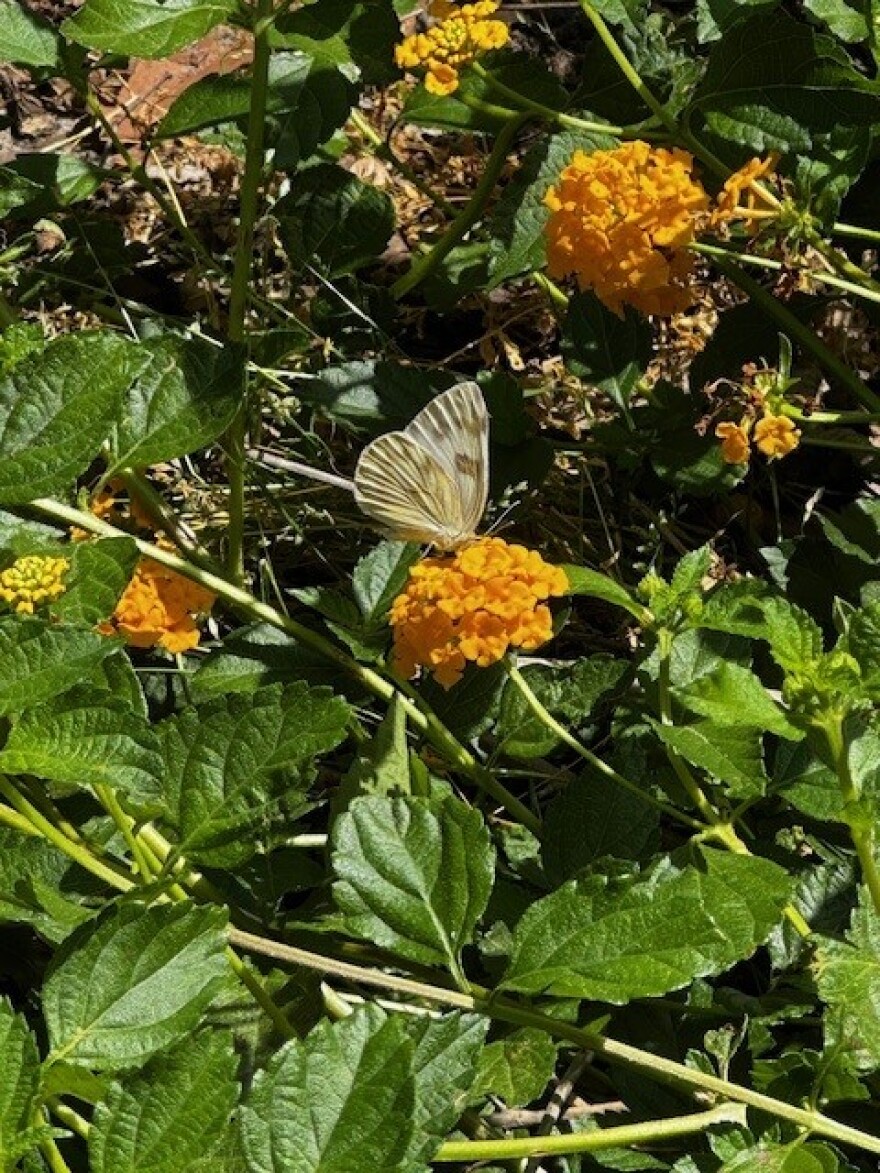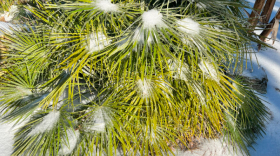About 70% of the world’s crop production relies on pollinator insects for survival.
That makes it helpful to know how many pollinators are out there. As a citizen scientist, you can participate in this year’s Great Southeast Pollinator Census.
Agents with the University of Florida Institute of Food and Agricultural Sciences (UF/IFAS) Extension are looking for volunteers to count pollinators. The census is a regional event that includes Florida, Alabama, Georgia, North Carolina and South Carolina.
You don’t even have to register to count the pollinators.

During the census, August 22-23, you’re encouraged to pick one or more plants in your yard. Write the name of the plant at the top of your data sheet. Set your timer for 15 minutes and count each time an insect lands on the plant.
After 15 minutes, you can either move on to another plant or enter your data into the online database. Count the insects on as many plants as you want.
Each data sheet has a QR code or a weblink that you can use to upload the information you’ve gathered, said Jeremy Rhoden, the urban and residential horticulture agent with UF/IFAS Extension Marion County and the person leading the initiative in Florida.
“Participating is easy, and you don’t have to be an expert. You can visit the website for a simple guide on how to differentiate between the insect groups,” Rhoden said.
This marks the second year Florida has participated in the census.
Last year, 2,800 people from 53 Florida counties participated. They recorded 86,984 insects in these categories: butterflies, carpenter, honey, bumble and small bees, wasps, flies and moths, said Tia Silvasy, residential horticulture agent for UF/IFAS Extension Hillsborough County.
The census has three major goals:
- To create a sustainable pollinator habitat by educating gardeners about using plants that attract and benefit pollinators and will continuously provide for them over time.
- To increase residents’ knowledge about entomology – the science of insects.
- To generate useful data about pollinator populations.

"We hope participants learn basic insect identification, such things as flies have big eyes and wasps have skinny waistlines," Silvasy said.
Down in South Florida, Lorna Bravo, urban residential horticulture agent for UF/IFAS Extension Broward County, is also preparing for the pollinator census. Bravo said it’s important that everyone take stock of the pollinators in their yard.
“It is important for residents of all backgrounds to participate in the pollinator census because pollinators are essential to our everyday lives — providing us with much of our food, supporting healthy and diverse ecosystems and contributing significantly to Florida’s economy and natural beauty,” Bravo said. “In fact, nearly half of Florida’s crops — including favorites like avocados, mangos and watermelon — depend on pollinators. Indeed, about one in every three bites of food we eat comes thanks to the work of pollinators.”
“By joining the census, you help ensure these vital species are protected for current and future generations, no matter where you live or what you grow in your yard,” she said. If you have any questions about the census, please contact hillsmg@mail.ufl.edu or Rhoden at Jeremy.k.rhoden@ufl.edu. Also, you can follow the new UF/IFAS Great Florida Pollinator Census Facebook page for more information about the census.
ABOUT UF/IFAS: The mission of the University of Florida Institute of Food and Agricultural Sciences (UF/IFAS) is to develop knowledge relevant to agricultural, human and natural resources and to make that knowledge available to sustain and enhance the quality of human life. With more than a dozen research facilities, 67 county Extension offices, and award-winning students and faculty in the UF College of Agricultural and Life Sciences, UF/IFAS brings science-based solutions to the state’s agricultural and natural resources industries, and all Florida residents.







